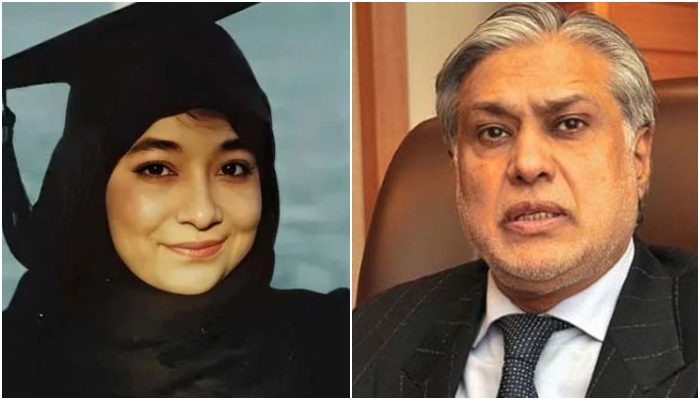
ISLAMABAD: Deputy Prime Minister and Foreign Minister Ishaq Dar on Monday clarified his recent remarks about Dr Aafia Siddiqui, saying they were “misunderstood” and “taken out of context”.
Taking to X, Dar explained that during his appearance at the Atlantic Council think tank in Washington, a reference he made to Dr Aafia’s case while responding to a question about former prime minister Imran Khan’s legal proceedings in Pakistan was misconstrued.
“My reference to Dr Aafia Siddiqui’s case during my response to a question about Imran Khan’s legal matters was taken out of context,” he said, adding that successive PML-N governments have consistently extended full diplomatic and legal support for her release and would continue to do so until her repatriation is achieved.
Highlighting the importance of respecting the judicial processes of sovereign states, he said: “Every country has its own legal and judicial systems that must be respected — whether it is Pakistan or the United States.”
Dar reaffirmed that the government’s stance on Dr Aafia Siddiqui’s case remains “firm and unambiguous”.
The foreign minister, who is currently on a visit to US, spoke at the Atlantic Council in Washington and responded to a question concerning Pakistan Tehreek-e-Insaf (PTI) founder’s legal proceedings by saying that a fair legal process is underway in Pakistan.
In his reply, he compared it to Dr Aafia’s prolonged incarceration in the United States, noting that her detention should not be viewed as a failure of legal procedures.
“Pakistan did not interfere in that process because the Americans had followed their judicial system.”
Similarly, he said, Imran was sentenced by Pakistan’s judiciary, which followed the due process of law. “When the due process is followed, others do not have the right to interfere,” he said.
“If Dr Aafia Siddiqui’s imprisonment is the result of a legitimate legal process, then the same interpretation should apply universally,” he added.
Dr Aafia, a Pakistani neuroscientist, was indicted by a New York federal district court in 2008 on charges of attempted murder and assault, stemming from an incident during an interview with the US authorities in Ghazni, Afghanistan — charges that she denied.
After 18 months in detention, she was tried and convicted in early 2010 and sentenced to 86 years in prison. She has since been imprisoned in the US.
Prime Minister Shehbaz Sharif had also written a letter to former US president Joe Biden, seeking clemency for the Pakistani neuroscientist. However, the Democrat did not grant her relief.
A day ago, the premier met Dr Fouzia Siddiqui, sister of Dr Aafia, and assured her that the government would continue to provide all possible legal and diplomatic support in the matter of the academic.
Speaking to Dr Aafia’s sister, the prime minister said: “The government is in no way negligent regarding the case of Dr Aafia Siddiqui.”
On the instructions of PM Shehbaz, the government has previously provided diplomatic and legal assistance in the case of Dr Aafia, a press statement issued by the PM Office said.
The committee will remain in contact with Dr Fouzia and will work to provide the necessary support in this regard, the statement added.







